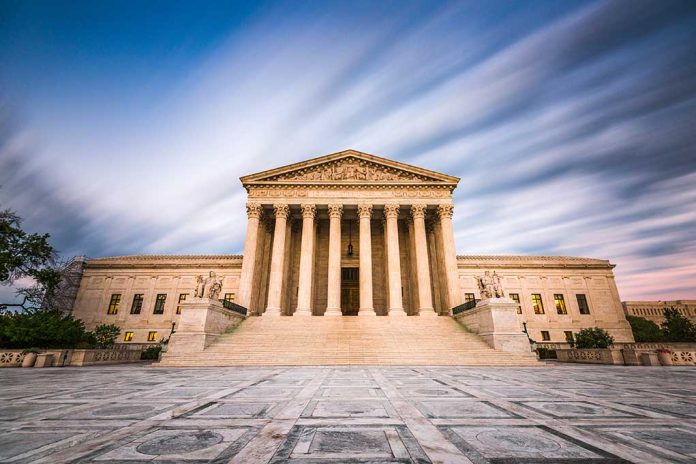
(UnitedVoice.com) – The Voting Rights Act of 1965 prohibited racial gerrymandering, requiring congressional redistricting plans to conform with the standards of the 14th Amendment’s Equal Protection Clause. Voters in South Carolina sued the state, arguing Republican lawmakers redrew the map after the 2020 Census and violated the law. The Supreme Court recently rejected those allegations and ruled in favor of the GOP. Experts say the ruling could have widespread implications.
The Lawsuit
In January 2022, South Carolina Governor Henry McMaster (R) approved a proposed congressional map that moved 62% of the black population in Congressional District 1, located in Charleston, to another district. The move changed the first district from a purple region that has elected candidates from both parties in recent elections to a strong Republican district.
The following month, the South Carolina State Conference of the NAACP sued Senator Thomas Alexander (R) in his capacity as the Senate president. They claimed the map violated the 14th and 15th Amendments.
The US District Court of South Carolina ruled in favor of the NAACP in January 2023. The court applied the standard set by the US Supreme Court in Miller v. Johnson, which states the plaintiffs must prove race was a major factor in the redistricting effort. Republicans argued they intended to gerrymander the district along political lines, not racial lines. They called the District Court’s ruling erroneous and appealed to the Supreme Court.
Supreme Court Ruling
On May 23, the Supreme Court ruled 6-3, along ideological lines, that South Carolina Republicans did not racial gerrymander when they drew the new congressional map. The justices reversed the lower court’s ruling and gave Conservatives a major win in one of the most important cases of the term.
Justice Samuel Alito penned the majority opinion for the high court, saying the District Court paid “only lip service” to the Supreme Court’s redistricting doctrines. He stated the “misguided approach infected” the findings of the lower court and called them “clearly erroneous under the appropriate legal standard.”
The Supreme Court previously ruled that political gerrymandering was legal in the 2019 case of Rucho v. Common Cause.
The court’s three liberal justices — Sonia Sotomayor, Elena Kagan, and Ketanji Brown Jackson — dissented. Kagan wrote the dissent and accused the conservatives on the court of “reworking the law” to “impede racial-gerrymandering cases.”
Experts claimed the ruling was important for the GOP because it keeps GOP Rep. Nancy Mace’s seat safe in a year when the House majority is on the line. However, the map was already going to be used in the election, per a District Court ruling. Also, the ruling set a new standard for challenges to maps. Litigants will now have to present overwhelming evidence that a district is being racially gerrymandered if they intend to file suit.
Copyright 2024, UnitedVoice.com






















